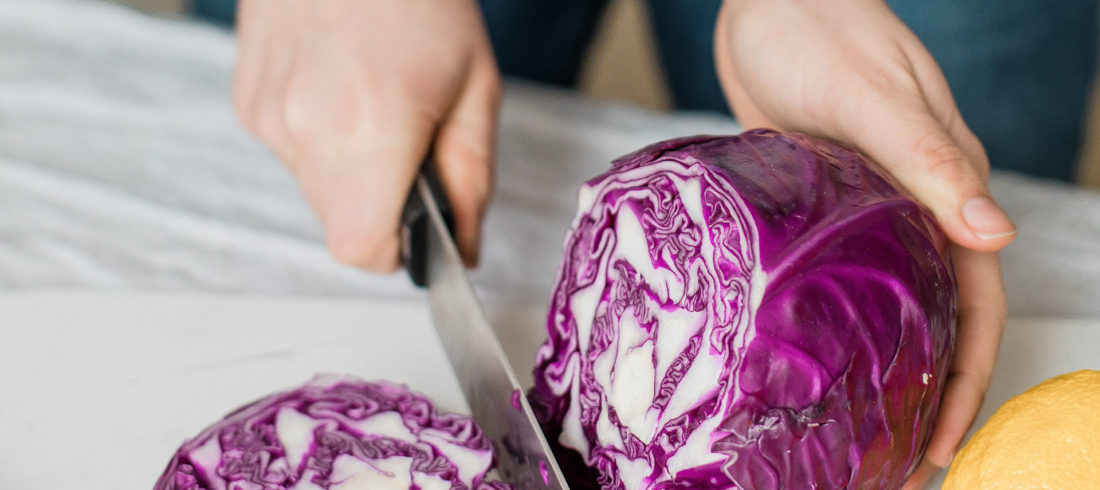We may think we are made up of flesh, bone and blood. But more than all of those things, we are made up of bacteria. Yes! Bacteria. You share your body with many millions of them! It’s estimated that the human gut contains 100 trillion bacteria, 10 times as many bacteria as there are cells in the human body. As it happens, they are very important in a great number of your bodily functions, so it’s a good idea to get to know more about them. If you are wondering why “guts” is often popularly used to represent “courage,” it may be that the intestinal fortitude needed to process our food and nourish our bodies take strength and persistence.
Where exactly is our gut?
The gut (gastrointestinal tract) is a long tube that begins at the mouth and ends at the anus.
The gut processes food – from the time it is first eaten until it is either absorbed by the body or passed out as stools (or feces). Digestion begins in your mouth with teeth and body enzymes begin to break down food. Once you swallow, muscular contractions help to move food into the esophagus (or gullet) and on to the stomach. Chemicals produced by cells in the stomach begin the major work of digestion.
As food travels down the gut
Some foods and liquids are absorbed through the lining of the stomach, the majority are absorbed in the small intestine. Muscles in the wall of the gut mix your food with the enzymes produced by the body. They also move food along towards the end of the gut.
Food that can’t be digested, waste substances, germs (bacteria) and undigested food are all passed out as feces. Every step in this journey is intriguing but today we want to focus on the processes and bacteria that live in our stomach and intestines and how they affect our bodily functions.
Get to know your gut flora
The bacteria in our gut, or gut flora, influence our health in a variety of ways:
- Helping to extract energy from food
- Whole grains, fruits, vegetables and fermented foods all support healthy gut bacteria, while too many sugary foods, artificial sweeteners and unhealthy fats can be bad for your gut bacteria
- Protecting against infection by harmful, disease-causing bacteria
While scientists and gastroenterologists are only just beginning to understand the far-reaching activities of gut bacteria, we do know that they have a substantial influence on our wellness, including the ability to maintain a healthy weight.
Cool things we already know about gut bacteria
Because your gut bacteria can influence how different foods are digested, they can also produce chemicals that help to make you feel full. For instance, dietary fiber is digested by certain species of gut bacteria, which, in time, obviously can aid weight loss. “Hooray,” we hear you saying, “so I just need to get my gut right and I’ll lose weight?” Unfortunately it’s not quite that simple. Here are some important factors to consider:
- Whole grains, fruits, vegetables and fermented foods all contribute to healthy gut bacteria, while too many sugary foods, artificial sweeteners and unhealthy fats don’t just add empty calories, they can be bad for your gut bacteria.
- Some types of gut bacteria are needed for maintaining a healthy gut barrier and preventing inflammation, which can contribute to weight gain.
Your internal bacterial community – aka: microbiota
A growing body of research supports the fact that your internal community of bacteria, called the microbiota, may not also affect your weight, but it does so by influencing your metabolism.
For example, a newly discovered type of bacteria, Christensenellacae[1], is associated with being slim and lean, while those who have less of it, tend toward obesity. Many researchers are exploring the concept that your gut microbiota influences your food processing and therefore helps to determine how many calories and nutrients the body can absorb.
Scientists believe that some of a person’s gut bacteria is the result of genetics, it is highly likely that lifestyle and diet can have a great impact on whether your gut is inhabited with greater numbers of beneficial or harmful microbes.
Do bacteria control our weight?
We are in the early days of this research but we know that the gut bacterial population in people who are obese differs from those people who are lean. We gain weight when we take in more calories than our body burns – an energy imbalance. There is some evidence that bacteria in the gut effectively extract energy from the food that reaches our small intestine. So are there things we can do to alter the functioning of our gut bacteria? It’s too soon to say but even the Mayo Clinic[2] believes it is not impossible.
How to promote a healthy gut
There’s no magic bullet for gut health but there are some steps that will definitely help. Eating a good proportion of your daily meals from fruits and vegetables appears to help good bacteria in your gut to thrive. Reducing sugar, fat and animal protein may also help. There is research that show that diets high in these foods are linked to a less favorable mix of bacterial in the gut
Can probiotics help?
Probiotic supplements may improve the gut microbiome, but we don’t yet have proof that they will help you to lose weight. However, if you feel well, you are better able to exercise more, and that coupled with a healthy diet and reduced calories will help you lose weight.
If you have intestinal discomfort, it is always the best course of action to consult your primary care provider or your gastroenterologist. For an appointment at Premier Medical Group’s Gastroenterology Division, call either our Poughkeepsie/Fishkill Office: (845)471-9410 or our New Windsor Office: (845)562-0740
[1] Source, a study in the journal, Cell
[2] Source the Mayo Clinic

